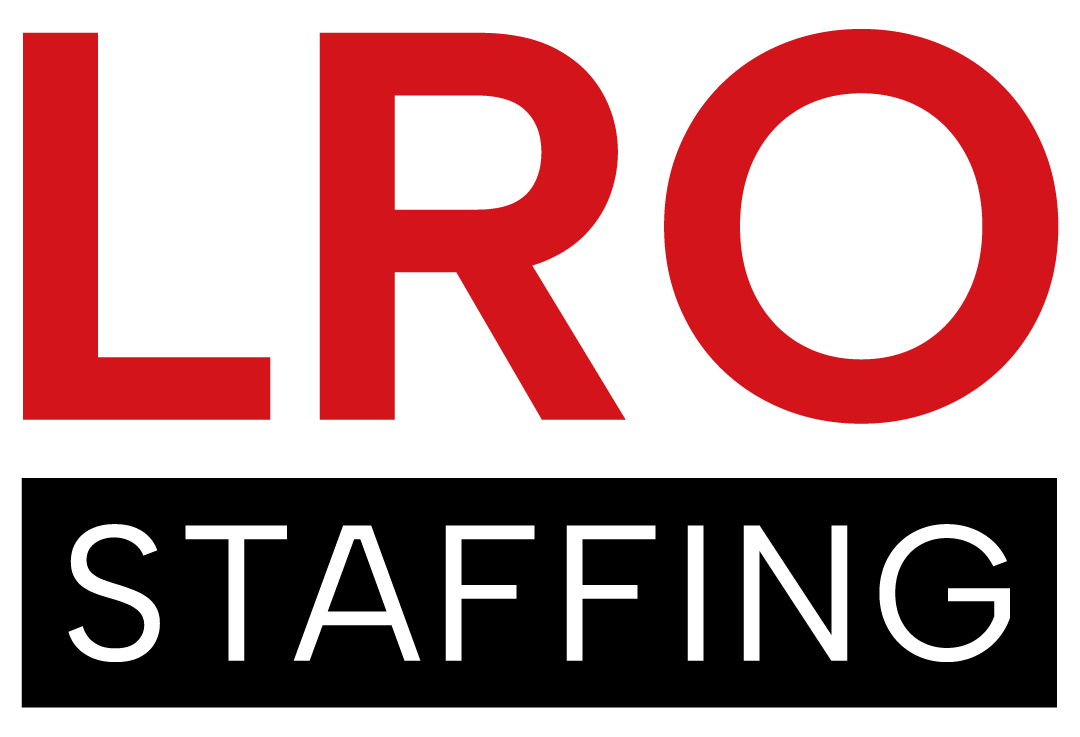Hiring is one of the most important investments a business can make. The right person in the right role can elevate a team, drive results, and strengthen company culture. But the opposite is also true — a rushed or poor-quality hire can cost an organization time, money, and morale.
In today’s fast-paced job market, where top candidates are often off the market within 10 to 14 days, many employers feel pressured to make quick decisions. At the same time, they can’t afford to sacrifice quality for speed. So how do you strike the balance?
At LRO Staffing, we’ve seen firsthand that recruitment isn’t about choosing between fast or thorough. It’s about designing a hiring process that delivers both. Here’s what employers need to know about balancing speed and quality in recruitment.
Why Speed Matters in Hiring
The recruitment landscape is more competitive than ever. Candidates often receive multiple offers at once, and skilled professionals expect timely communication. Delays in your process can cost you great talent.
- Top candidates disappear quickly. Research shows that the best candidates are often hired within two weeks of starting their job search. A slow process means you may lose them to a competitor.
- Candidate experience shapes your reputation. Long hiring timelines can leave candidates disengaged or frustrated, damaging your employer brand.
- Open roles impact productivity. Every day a position remains unfilled can strain your team, leading to burnout and missed opportunities.
Why Quality Matters Just as Much
While moving quickly is important, it’s equally critical to make sure you’re hiring the right person for the job. Quality ensures that the people you bring in don’t just fill a seat, but are ultimately making your organization stronger.
- The cost of a bad hire is high. According to the U.S. Department of Labor, a bad hire can cost up to 30% of the employee’s first-year earnings. Factor in training, lost productivity, and the ripple effect on team morale, and the price tag rises.
- Cultural fit influences long-term success. Even the most skilled candidate may not thrive if their values and work style don’t align with your company.
- Retention saves money. Quality hires stay longer, grow with the company, and reduce turnover costs.
The Tension Between Speed and Quality
Many employers struggle to balance these two forces. Move too quickly, and you risk hiring the wrong person. Take too long, and you risk losing the right one. The tension often comes down to:
- Lengthy approval processes that stall decisions.
- Overcomplicated interview structures with too many stakeholders.
- A lack of clarity about the must-have skills versus nice-to-have qualities.
To resolve this tension, organizations need to rethink their hiring processes with both speed and quality in mind.
How to Balance Speed and Quality in Recruitment
Here are practical strategies to help employers strike the right balance.
1. Define What You Really Need
Clarity speeds up hiring because decision-makers are aligned from the start. It also improves quality by ensuring you’re evaluating candidates against the right benchmarks. Before posting a job, make sure to take the time to clarify the role by asking:
- What skills are truly essential?
- What experiences are nice to have but not mandatory?
- What personality traits or values will help someone thrive in your culture?
2. Streamline Your Hiring Process
A streamlined process reduces delays without cutting corners. Examine your current recruitment steps and identify points where things slow down, pile up, or get stuck. These bottlenecks could be caused by:
- Limit unnecessary rounds of interviews. Three stages (screening, skills assessment, and final interview) are often enough.
- Empower hiring managers to make decisions. Avoid too many layers of approval that slow down offers.
- Set clear timelines. Communicate expected deadlines for each stage to everyone involved.
3. Use Technology Wisely
At LRO Staffing, we also emphasize that people should always come first. Technology supports the process but should never replace human connection. That said, it can speed up hiring without sacrificing quality when used correctly.
- Automated scheduling tools let candidates pick interview times that work best for them, reducing back-and-forth emails and accelerating the process.
- AI-based tools can assist with skills assessments or note taking in an interview, but they shouldn’t replace human judgment.
- Video interviews allow for flexible scheduling, reducing time-to-hire.
4. Build a Talent Pipeline
Don’t wait until a role is open to start searching. By cultivating a pipeline of potential candidates, you can respond quickly when positions arise.
- Stay in touch with promising candidates who weren’t selected for past roles.
- Network regularly within your industry.
- Partner with a staffing firm that keeps a pool of pre-screened talent.
5. Communicate Clearly and Consistently
Candidate experience matters. Candidates who feel respected and informed are more likely to stay engaged throughout the process. Transparent and timely communication improves both speed and quality.
- Let candidates know your timeline upfront.
- Provide regular updates, even if there’s no change.
- Give constructive feedback when possible.
6. Leverage Staffing Experts
Working with a recruitment partner like LRO Staffing helps balance speed and quality simultaneously. This partnership allows employers to focus on business priorities while we handle the heavy lifting of recruitment.
- We maintain networks of pre-qualified professionals, reducing time-to-hire.
- Our recruiters understand your industry and can identify top talent quickly.
- We conduct thorough screening to ensure candidates meet both technical and cultural requirements.
The Business Case for Getting It Right
When organizations invest in improving recruitment processes, they don’t just solve staffing problems — they gain a competitive advantage in attracting and retaining top talent. Balancing speed and quality in recruitment isn’t just about filling roles. It’s about building long-term business success.
- Faster hires reduce lost productivity.
- Better-quality hires increase performance and retention.
- A streamlined process strengthens your employer brand.
Employers don’t need to choose between fast hiring and quality hiring. With the right strategy, you can have both. By defining priorities, streamlining processes, using technology wisely, and leveraging staffing expertise, your organization can move quickly while still making thoughtful, informed decisions.
At LRO Staffing, we specialize in helping employers achieve this balance. Whether you’re filling a single role or building an entire team, our recruiters ensure that speed never comes at the expense of quality.
Ready to hire smarter and faster? Connect with us today to learn how we can support your recruitment needs.

